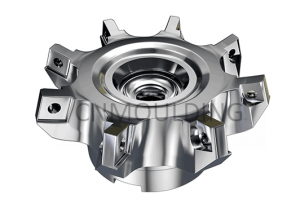Due to the rapid development of plastic materials and the extensive demand for plastic products, more requirements are put forward for the properties of plastic injection mould steel. Therefore, many developed countries in Europe and America have created a wide range of plastic mold steel series, including carbon steel, Carburizing plastic mold steel, aging hardening plastic mold steel, corrosion-resistant plastic mold steel, free processing plastic mold steel, and permeable plastic mold steel. Maraging plastic mold steel and mirror polishing plastic mold steel, etc.

The spec of plastic injection mold steel
1.German standard: DIN
Code:
1.2738:Low carbon, high alloy (P20)
1.2311:Low carbon, high alloy (P20)
1.2312:Low carbon, high alloy, free Machine (P20)
1.2083:Stainless Steel (420)
1.2316:High performance stainless Steel (420)
1.2343:Chromium base (H11)
1.2344:Chromium base (H13)
1.2510:Low alloy steel (O1)
1.2379:High carbon, high chromium steel (D2)
2.Japan standard: JIS
Code:
SxxC:Plain Carbon steel(S55C)
SUSxx:Stainless Steel (420)
SCrx:Chromium Steel
SCMx:Chromium Molybdenum Steel(P20)
SKx:Carbon Tool Steel
SKSx:Low Alloy Steel (- O1)
SKD11:Medium High Alloy Steel(D2)
SKD6:Medium High Alloy Steel(H11)
SKD61:Medium High Alloy Steel(H13)
SKHxx:High Speed Steel (M 2)
SUMx:Free Cutting Steel
SUJx:Bearing Steel

3.USA standard: AISI
Code:
P1-P19:Low Carbon Steel
P20-P39:Low Carbon, High Alloy Steel
2XX,3XX,4XX,6XX:Stainless Steel
H1-H19:Chromium base
Wx:Water Hardening Steel
Sx:Shock Resisting Steel
Ox:Oil Hardening Steel
Ax:Air Hardening Steel
Dx:High Carbon, High Chromium Steel
Mx:Molybdenum base (H.S.S.)
Top-grade imported mold steels parameters & performance
ASSAB 88 – Highly abrasion/corrosion resistant pre-hardened mirror finish steel
ASSAB 88 mold steel is a chromium, molybdenum, vanadium alloy tool steel, Its
characteristics are high wear resistance, good avalanche, good compressive strength,
high-temperature tempering, high hardness (> 60HRC), good hardenability, good dimensional
stability, good tempering resistance, good softening, good wire cutting performance. Good
surface treatment properties (%): C: 0.90 Cr: 7.80 Mn: 0.50)
ASSAB 88 die steel is a multi-purpose cold working tool steel. It has good anti-mixing /
abrasive wear resistance and anti-collapse angle. High hardness can be obtained after
high-temperature tempering (> 60HRC). Therefore, the risk of cracking can be reduced by
wire-cutting on a large section of high hardness (> HRC60). In addition, high strength
matrix is especially suitable for surface treatment such as nitriding or PVD. ASSAB88 mold
steel, which is mainly used in medium production mould with good abrasive or mixed wear
resistance and good anti-collapse angle.
ASSAB 718HH — High-polishing pre-hardened precision plastic mold steel
ASSAB 518 is a pre-hardened plastic mould steel with good machinability and
polishability. ASSAB 518 is DIN standard 1.2311 material.
ASSAB 618 is a pre-hardened plastic mould steel with good machinability and
polishability. ASSAB 618 is DIN standard 1.2738 material.
ASSAB 618 HH is a pre-hardened plastic mould steel with good machinability and
polishability. ASSAB 618 HH is DIN standard 1.2738 material.
ASSAB 618 T is a pre-hardened plastic mould steel suitable for medium and large tools
that require a good surface appearance. ASSAB 618 T is a modified grade of DIN standard
1.2738 material. promoted as Impax HH.
DAIDO NAK80 – Pre-hardened mirror surface precision plastic mold steel
NAK80 is a 40 HRC pre-Hardened, high-performance, high-precision, mold steel.
Applications include plastic molds, rubber molds, jigs & fixtures, and press dies.
Features:
Machines up to 20 percent faster than HRC 30 P20
Pre-hardened to 38-42 HRC
Uniform microstructure & hardness (40 HRC between surface & interior)
Never needs stress relieving, even after heavy machining
Highly weldable, HAZ gets softer not harder (re-age harden to bring back to 40 HRC)
EDM layer is easy to remove
DAIDO DHA1 – High performance hot-work tool steel JIS SKD61
“SKD-61” is special tool steel, also known as “die steel”! The brand corresponding to our country (GB/T 1299-2000) is 4Cr5MoSi V1, which is the most widely used hot die steel. It can replace the SKD61.SKD61 corresponding to the US standard is H13, Korea is STD61. The chemical composition of SKD61, Japan grade hot work die steel (JIS4404-1983) is as follows:%): C: 0.32n0.42 Si: 0.81.2 Mn: < 0.50 Cr: 4.505.50 Mo: 1.001.50V: 0.80.3P: < 0.03P: < 0.03 heat treatment: air quenching, quenching temperature 10201050 degrees, hardness 5658HRC, heat treatment deformation small, surface nitriding.
5 Classes of mould
According to the length of mould life, molds can be divided into five categories. The number of shots in the first type mould is 1 million or more, the second mold is 500000-1 million times, the third mold is 300000-500000 times, the fourth mold is 100000 times, the fifth level is less than 100000 times, The steel materials required for the first and second grade dies are: they can be hardened and the hardness is about HRC 50, otherwise the mould is easy to wear, which leads to the tolerance of the injection molding products exceeding the standard. Therefore, the selected steel material should have good heat treatment properties and machinability despite its high hardness.
There are, of course, other considerations. Typically, steel options include Sweden 8407 and S 136; USA 420 and H13; Europe 2316, 2344 and 2083; and Japan, SKD 61. For strongly corrosive plastics, steel S 136C 2316 and 420 are usually used. In addition to steel S136H2316 and steel 420, SKD 61Nak 80 / PAK90 and 718M steels can also be used for low corrosion plastics. The appearance of the products also has a great influence on the die materials. The steel materials S136H 2316718 SNAK80 PAK90 and 420 steel are suitable for transparent polishing and mirror polishing products, while the high transparent products should mainly use S136, followed by 420 steel class .3 dies mainly using pre-hardened steel such as S136H, S136H 2316HN718H, and 083H, etc. The hardness is between HB 270 and 340. Type 4 and Class 5 dies are usually made of steel P20718, 738, 6182311, and 2711. For extremely low demand dies, S 50 C and 4 steel can be used, that is, a cavity can be made directly on the mould frame.
